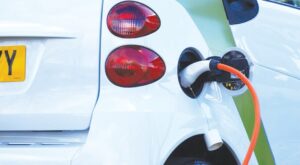In recent years, the automotive landscape in India has been undergoing a remarkable transformation, with a notable surge in the sales of electric vehicles (EVs). As 2023 unfolds, this trend is gaining even more momentum, fueled by various factors ranging from government incentives to environmental consciousness among consumers. This article will delve into the burgeoning market of EVs and explore the key drivers behind this remarkable surge in EV vehicle sales in India.
Changing the Status Quo: Government Initiatives
The surge in Electric Vehicle (EV) sales in India is primarily attributed to the proactive measures taken by the government. To combat air pollution and decrease the country’s carbon footprint, the Indian government has implemented various incentives and policies to encourage EV adoption. The Faster Adoption and Manufacturing of Hybrid and Electric Vehicles (FAME) scheme is a prominent initiative that provides financial incentives to both manufacturers and buyers of EVs, making these vehicles more affordable and accessible to a broader population segment.

Environmental Awareness and Sustainability
Growing consciousness regarding environmental issues and the significance of sustainability has led to a change in consumer preferences in India. Many individuals and businesses are now favoring electric vehicles over traditional gasoline or diesel-powered cars. The reduced carbon emissions associated with EVs are in line with the worldwide drive for cleaner and more eco-friendly transportation solutions. Additionally, the Indian population is becoming more concerned about air quality, particularly in densely populated urban areas where pollution levels can be notably high. Electric vehicles, producing zero tailpipe emissions, are perceived as a solution to address air pollution issues and enhance overall quality of life.
Economic Viability Lower Operating Costs
Despite the higher upfront cost compared to gasoline vehicles, consumers are acknowledging the long-term economic advantages of owning an Electric Vehicle (EV). EVs usually incur lower operational expenses due to the significantly reduced price of electricity compared to gasoline or diesel fuel. Moreover, EV owners benefit from reduced maintenance costs as electric motors have fewer moving parts and generally require less servicing than internal combustion engines. These financial benefits make electric vehicles an appealing choice for budget-conscious consumers.
Expanding Charging Infrastructure
The growth of charging infrastructure significantly contributes to the increasing sales of Electric Vehicles (EVs) in India. Both government and private entities are investing in establishing a widespread network of charging stations throughout the country. This expansion has addressed concerns about range anxiety, providing greater convenience for EV owners to charge their vehicles. Moreover, advancements in charging technology, particularly fast-charging stations, have notably reduced the time needed to recharge an electric vehicle, enhancing overall convenience and boosting consumer confidence in EVs.
EV Models Catering to Diverse Needs
Manufacturers in India are actively introducing a diverse range of electric vehicle models tailored to accommodate various consumer needs. From compact electric cars ideal for city commuting to electric SUVs offering ample space and versatility, there’s an EV model available to suit different preferences and requirements. Additionally, electric two-wheelers, like scooters and motorcycles, have become popular as practical and eco-friendly urban mobility alternatives. This broad range of EV options has expanded the market and attracted a more extensive customer base.

Corporate Fleets and Government Adoption
In addition to individual consumers, corporate fleets and government agencies in India are increasingly adopting electric vehicles. These entities are acknowledging the advantages of reducing their carbon footprint and operational expenses by integrating electric vehicles into their fleets. Several state governments in India have launched programs to replace conventional vehicles with electric ones. This not only sets a precedent for sustainable transportation but also generates substantial demand for EVs in the market.
Conclusion
The surge in EV vehicle sales in India in 2023 reflects a significant shift in the country’s automotive landscape. As the EV market continues to thrive, India is poised to contribute significantly to the global transition towards cleaner and more sustainable transportation solutions. The ongoing developments in the Indian electric vehicle industry are not only reshaping the way people travel but also setting the stage for a greener and more environmentally responsible future.


